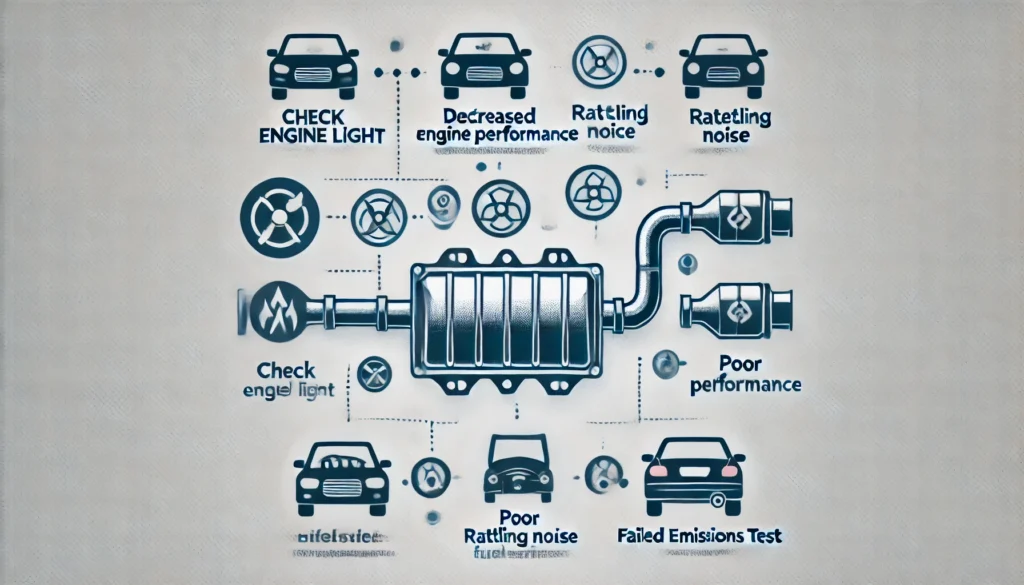A catalytic converter plays a crucial role in reducing harmful emissions from your vehicle. However, like any component, it can fail over time. Understanding what are signs of a bad catalytic converter can help you identify issues early and prevent more significant problems down the road.

Common Signs of a Bad Catalytic Converter
1. Check Engine Light
One of the first indicators of a bad catalytic converter is the illumination of the check engine light. This happens because the oxygen sensors detect abnormal levels of exhaust emissions, triggering the light on your dashboard.
2. Decreased Engine Performance
A failing catalytic converter often causes a noticeable drop in engine performance. You might experience sluggish acceleration, difficulty maintaining speed, or reduced power when climbing hills. This is due to a blockage in the converter, restricting the flow of exhaust gases.
3. Rattling Noise
A rattling noise from beneath your vehicle is a strong indicator that the catalytic converter is deteriorating. This sound typically occurs when the internal components of the converter break apart, causing the rattling noise as they move around inside the casing.
4. Poor Fuel Efficiency
If your catalytic converter is failing, your vehicle may consume more fuel than usual. This is because a clogged or damaged converter can cause incomplete combustion, leading to increased fuel consumption as the engine works harder to compensate.
5. Failed Emissions Test
A faulty catalytic converter is one of the most common reasons for failing an emissions test. If your vehicle fails this test, it could be due to the converter not properly filtering out harmful emissions, resulting in higher-than-normal levels of pollutants.
How to Address a Bad Catalytic Converter
If you notice any of these signs, it’s essential to have your catalytic converter inspected and replaced if necessary. Driving with a failing converter can lead to more serious engine problems and increased emissions.
Preventing Catalytic Converter Issues
Regular maintenance, including timely oil changes and engine tune-ups, can help prevent catalytic converter problems. Additionally, addressing issues like a misfiring engine or a malfunctioning oxygen sensor early on can prolong the life of your converter.
Conclusion
Understanding what are signs of a bad catalytic converter can save you time, money, and hassle. From the check engine light to decreased performance and rattling noises, these signs are crucial indicators that should not be ignored. Regular vehicle maintenance and prompt attention to these warning signs can keep your catalytic converter, and your vehicle-running smoothly.
